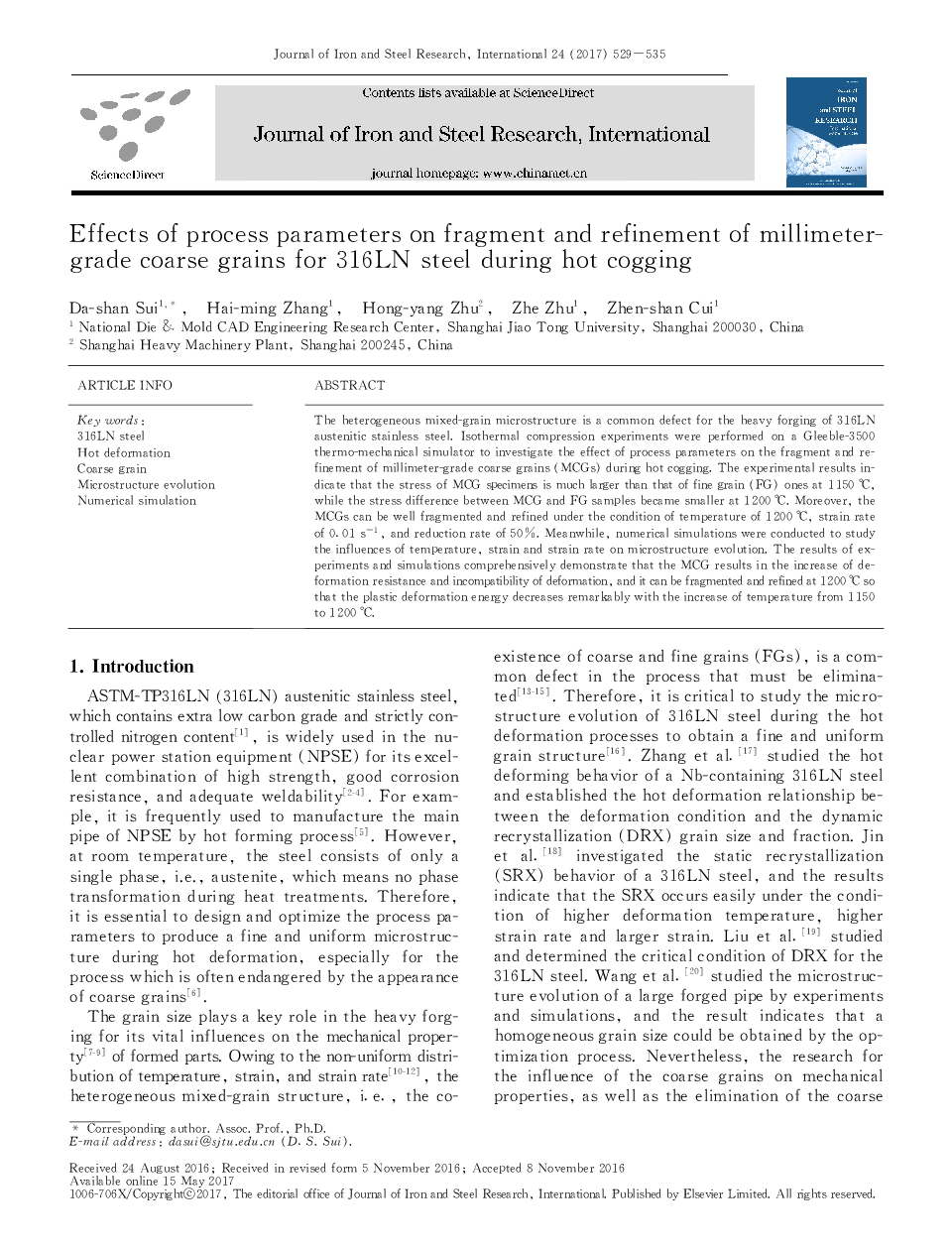| Article ID | Journal | Published Year | Pages | File Type |
|---|---|---|---|---|
| 8004267 | Journal of Iron and Steel Research, International | 2017 | 7 Pages |
Abstract
The heterogeneous mixed-grain microstructure is a common defect for the heavy forging of 316LN austenitic stainless steel. Isothermal compression experiments were performed on a Gleeble-3500 thermo-mechanical simulator to investigate the effect of process parameters on the fragment and refinement of millimeter-grade coarse grains (MCGs) during hot cogging. The experimental results indicate that the stress of MCG specimens is much larger than that of fine grain (FG) ones at 1150 °C, while the stress difference between MCG and FG samples became smaller at 1200 °C. Moreover, the MCGs can be well fragmented and refined under the condition of temperature of 1200 °C, strain rate of 0.01 sâ1, and reduction rate of 50%. Meanwhile, numerical simulations were conducted to study the influences of temperature, strain and strain rate on microstructure evolution. The results of experiments and simulations comprehensively demonstrate that the MCG results in the increase of deformation resistance and incompatibility of deformation, and it can be fragmented and refined at 1200 °C so that the plastic deformation energy decreases remarkably with the increase of temperature from 1150 to 1200 °C.
Related Topics
Physical Sciences and Engineering
Materials Science
Metals and Alloys
Authors
Da-shan Sui, Hai-ming Zhang, Hong-yang Zhu, Zhe Zhu, Zhen-shan Cui,
